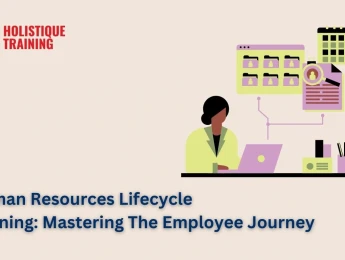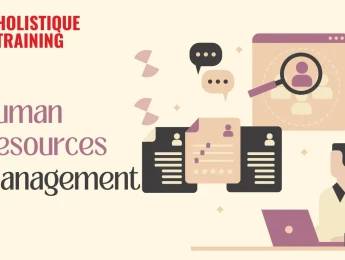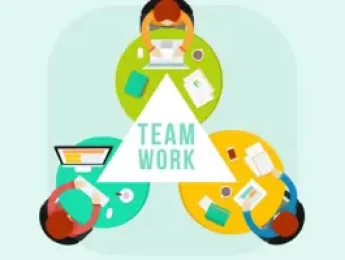Developing respect in the workplace is essential to creating a functioning, productive and happy workforce. All managers must create an open and inviting atmosphere that generates good relationships between their staff and gives each individual the confidence to approach management with problems or concerns.
Building these healthy working relationships isn’t as easy as finding a few team-building exercises throughout the year. In fact, there’s constant pressure on all leaders to develop an environment that fosters morale and teamwork.
Employee Relationship Management (ERM) is essential for leaders or HR professionals to use best practice strategies when bringing a new team together or managing conflict within an existing team. Each leader must be able to identify a problem and use varied communication techniques to uncover the best course of action for all involved.
A happy and motivated team that works together can help to get each task done more quickly and to a higher standard, using each others’ strengths to build a framework for each task. Your employee relationships aren’t just about people enjoying their working role and doing a good job, though their behaviours reflect on any work you all do, both inside and outside the working environment, and will help your customers and stakeholders gain trust in your brand.
Upon completion of this course, participants will be able to:
- Understand the importance of good leadership.
- Develop effective methods of communication.
- See the results of body language on a team.
- Create innovative and effective methods of conflict resolution.
- Identify when a problem is occurring in your team and how to diffuse this before it escalates.
- Recognise how your employees’ behaviour can reflect externally on the company.
- Utilise your coaching techniques to create an open-door policy.
- Understand the proper HR methods to deal with an issue inside labour law.
This training was designed for anyone in a leadership role who aims to develop their communication style further and create a more motivated and future-focused team. it would be most beneficial for:
- Team Leaders
- Supervisors
- Operations Managers
- Business Owners
- HR Professionals
- Project Leaders
- Directors
- Front Line Employees
- Sales Managers
- Marketing Managers
- Change Managers
This course uses a variety of adult learning styles to aid full comprehension and understanding. The course uses seminar discussions to inform leaders of the effects of miscommunication and negative leadership and provides real-world examples of positive company communication and its benefits.
Participants will be able to identify problem areas within their organisations and create effective journey maps to understand ways to resolve conflict and move forward collectively. They will be faced with role-playing sessions to help coach and counsel employees when an issue has developed to help come to a positive resolution that motivates that individual and the rest of their team.
Day 5 of each course is reserved for a Q&A session, which may occur off-site. For 10-day courses, this also applies to day 10
Section 1: Understanding Your Employees
- What is labour law?
- The importance of labour law to your business.
- Your duties and responsibilities to your employees.
- Your leadership qualities and how they develop your team.
- Understanding the needs of employees.
- Assessing each employee as an individual and a collective.
Section 2: Managing Performance Effectively
- KPIs against SMART targets.
- Creating a balanced scorecard.
- Employee engagement surveys and understanding feedback.
- Delivering a negative message for a positive outcome.
- Quantitative vs. qualitative data.
- Understanding what’s objective and what’s subjective.
- Your measure of morale.
- Fair performance management procedures and managing across the board.
Section 3: Your Responsibilities As An ERM
- Identifying personal issues and understanding empathy.
- Empathy vs. sympathy.
- Solution-orientated answers.
- Coaching and counselling - setting your boundaries.
- Identify when people are asking for help.
- Body language and silent indicators.
Section 4: How to Air Grievances & Complaints Successfully
- The difference between grievances and complaints.
- When a complaint is serious.
- Your responsibilities as a human resource professional.
- Grievance resolutions and solutions.
- How to move on after a grievance is dealt with.
Section 5: Conflict Identification & Dispute Resolution
- The labour law understanding of disputes.
- How to resolve internal disputes.
- Investigating disputes with external parties.
- Potential resolutions and moving forward.
- Process reviews and how to make positive change.
- Mitigating risk areas within your teams.
- Avoiding conflict using conversation.
Upon successful completion of this training course, delegates will be awarded a Holistique Training Certificate of Completion. For those who attend and complete the online training course, a Holistique Training e-Certificate will be provided.
Holistique Training Certificates are accredited by the British Assessment Council (BAC) and The CPD Certification Service (CPD), and are certified under ISO 9001, ISO 21001, and ISO 29993 standards.
CPD credits for this course are granted by our Certificates and will be reflected on the Holistique Training Certificate of Completion. In accordance with the standards of The CPD Certification Service, one CPD credit is awarded per hour of course attendance. A maximum of 50 CPD credits can be claimed for any single course we currently offer.
- Course Code MG2-135
- Course Format Classroom, Online,
- Duration 5 days













